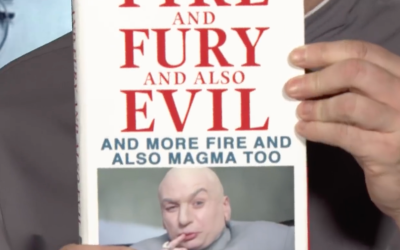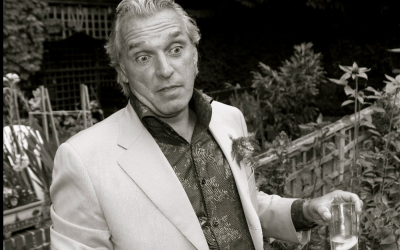
Everyone thinks they have a story inside them, and they probably do, but the process to get the story told is complex, the journey is long and the industry almost impossible to penetrate.
ONE: How to get you story down on paper…
I had never written a script for a TV Series/Film before, but I had done quite a lot of writing articles and papers. There are many people that write books about writing, and many You Tube videos and master classes. Some useful, others not.
What are you writing? A book/novel. a TV show or Film. Each has there own complexities and challenges. The issues is you have a lot of writing ahead of you, or I should say re-writes. Some people work on this basis and crunch out a basic plot, with basic characters. Others relate to personal experiences and base their writings on something that happened. Others just start writing, but a structure is useful but not necessarily a start, middle and end. As you could start with the end and work backwards.
The one thing I have learnt is there is not right way, and if you hesitate, you won’t find out much about yourself, as the journey of a writer is internalised. The story, the passion the ideas often comes from deep within and takes a huge effort to get onto paper. But you have to love writing, want to write and get enjoyment from it. It shouldnt be a chore. And dont worry about English, grammar and spelling at this stage. That comes later.
My mantra. Don’t let people put you off as they will try. If what you have written after reading it you think isn’t very good, welcome to the world of writing. Easier if it’s a story, 10x harder if its a screen play with dialogue. Dialogue is the hardest thing to write without question.
TWO: Where to send you Script?
Once you have a basic script people, aspiring writers, want to know who do they send it to? Do I need a literary agent? Good luck with that one. Who will help discover me? What you will find is nobody will help you. The film and entertainment industry is a closed shop. A clique.
The first thing to do is write the synopsis if its a book, or in the TV/Film industry parlance a series bible. The premise, the story outlines, characters and the business case if you like. Target audience, size of addressable market and why you wrote it. The desire and the passion within to get it told, maybe. Important: have your story/script reviewed by non family members, get feedback.
I have found the industry difficult to navigate because the approaches whether a Book, Film or TV Series are different, and the end busines case and partner is different.
Books = Publisher, or Literary Agent
TV Series = Show Runner, Platform or Channel,
Film = Platform, Studio, Director
The strategies and approach for each are entirely different, but nodody tells you this. You have to stumble and flounder around yourself, making the wrong moves, talking to the wrong people and then you realise. Everyone claims to know someone that can help you, but few really do. Fewer will actually help you.
THREE: Show me
I guess I was lucky as I decided to raise capital to make pilot for a TV Show or Film. After a false start, I re-wrote the concept from scratch deciding the genre first. Tech Thriller. A fast moving action packed story. But then decided less of the action packed and more about informing the audience, something more subtle, less hollywood and more edgy. A pilot as a pre-quel that sets up what is to come.
Here is mine: https://vimeo.com/381773171
A short film of 21minutes, that demonstrates a few things. That I can make content of reasonable quality for the budget, in our case small. Captures the style and the look and fee. I wanted the short film to be a little edgy and we created a unique music score to support his (mokadelic feel). I wanted the main character to feel vulnerable as a geek should, an anti hero, not one with muscles and special skills. A timid smart geek whos skill was he was also clever, he saw the bigger picture and he believed he could change the future.
FOUR: How to raise money to make your film/show?
Raising money in the film and entertainment industry is simply hard. It doesn’t really fit the Venture Capital markets and without a track record or an Oscar people won’t lend you money. It’s a high risk industry and the difference between a hit or flop can be down to casting or the directors decisions, a cut in budget or the actors don’t gel.
Family Offices do back films, or Film Funds that prefer to back writers and directors with history. Unless you have rich freinds this path can also be tricky to navigate. But possible. The good news is there is a global lack of content, and whilst Covid19 continues less is being made. The appetite for new content and the budgets to acquire them is high. Billions are available. The key is how to get to the people that make the decisions.
This takes networking, research, introductions and boldness to get notcied and not take no for an answer, although you will get hundreds. Life right?
FIVE: Targets
Most writers have unrealsitic targets. I did. But then industry experts engage, review your script and story and pull it apart. Painful but necessary, but not always.I did learn a lot and I am still learning.
Pacing, how the stopry reads and its momentum. Capture, does it grab you the viewer/reading quick enough, does the story immediately engage.
A leading script writer and teacher reviewed my script, a nervous time, and his comments focuses on impact, being different, having something deeper to say and all the other stuff.
But what kind of person are you. Will this also have a role. Put people off. Well yes.
(a) do you insist the story has to be told your way? Not accepting new ideas. Frankly not a good position as industry experts want flexibility and probably want to retain you not as a writer anyway. You want it told properly yes. But you are rigid? Are you easy to work with?
(b) sell the story concept, licence the rights and write the next. Maybe with the options to get profit from sales/rights. More likely. Unless your script is spectacular, it will be rewritten for film, tv or to suit the gap in the studio play lists. And the financial backers will bring their people in.
(c ) or like me you accept input and ideas, because it’s your first time, and you want to learn from experts. Yes, you learn, adjust and tweak things. You are prepared to get help, share the opportunity, learn on the job and you might get invited to be a story consultant, or input into the thing you have created.
Conclusions.
Writing a story, a scripted screenplay or novel takes a huge effort. However for me the most vital part is protecting your creative energies. And why I general write early in the morning before the world wakes up. No emails, just sitting there with the 3 cats, and I review at end of day sitting in bed. I read what I have written and sleeeeep on it, always with a note pad or script copy in case I have a moment. An idea to capture.
The best plots and charcater ideas I have are at 3am generally. After I have read something. And yes keep reading other peoples work, other scripts, novels and look back at older movies you enjoyed. But read them through a different lense. Think structure, character and story development, what is gripping you, the pace, twists and turns and the premise!
Remember there are very few genuinely new ideas, stories, plots, and why someone mention my pilot short film reminded them of 3 Days of the Condor with Robert Redford and Faye Dunaway. Well the plot anyway. It never occured to me.
Keep the faith. Have a go. We are all in the same place, learning and trying to perfect our art.
Maybe you have time on your hands…so what’s stopping you?
Authors: Nick Ayton is a technologist, writer, speaker and wannabe filmmaker



